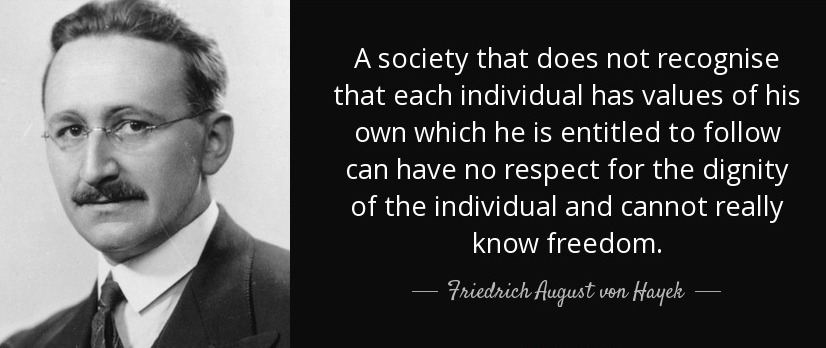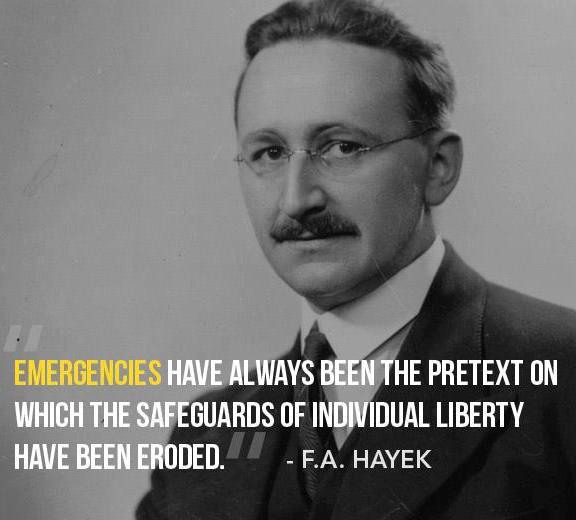|
home | what's new | other sites | contact | about |
||
|
Word Gems exploring self-realization, sacred personhood, and full humanity
F.A. Hayek The Road To Serfdom Conclusion
THE purpose of this book has not been to sketch a detailed program of a desirable future order of society. If with regard to international affairs we have gone a little beyond its essentially critical task, it was because in this field we may soon be called upon to create a framework within which future growth may have to proceed for a long time to come. A great deal will depend on how we use the opportunity we shall then have. But, whatever we do, it can only be the beginning of a new, long, and arduous process in which we all hope we shall gradually create a world very different from that which we knew during the last quarter of a century. However distasteful such an admission may be, we must recognize that we had before this war once again reached a stage where it is more important to clear away the obstacles with which human folly has encumbered our path and to release the creative energy of individuals than to devise further machinery for "guiding" and "directing" them--to create conditions favorable to progress rather than to "plan progress." The first need is to free ourselves of that worst form of contemporary obscurantism which tries to persuade us that what we have done in the recent past was all either wise or inevitable. We shall not grow wiser before we learn that much that we have done way very foolish. It is, indeed, those who cry loudest for the New Order who are most completely under the sway of the ideas which have created this war and most of the evils from which we suffer. The young are right if they have little confidence in the ideas which rule most of their elders. But they are mistaken or misled when they believe that these are still the liberal ideas of the nineteenth century, which, in fact, the younger generation hardly knows. Though we neither can wish nor possess the power to go back to the reality of the nineteenth century, we have the opportunity to realize its ideals--and they were not mean. We have little right to feel in this respect superior to our grandfathers; and we should never forget that it is we, the twentieth century, and not they, who have made a mess of things. If they had not yet fully learned what was necessary to create the world they wanted, the experience we have since gained ought to have equipped us better for the task. If in the first attempt to create a world of free men we have failed, we must try again.
************************************************
|
||
|
|

